This article will explore various types of legal cases in the U.S. and provide practical guidance on finding qualified attorneys in Irving, Texas, and other major cities.
Understanding Personal Injury Cases
Personal injury cases are prevalent in the U.S., involving claims for injuries sustained due to another’s negligence. Common examples include car accidents, slip and falls, and workplace injuries. To find a qualified attorney, look for those with a proven track record in personal injury law. Check online reviews, ask for referrals, and verify their credentials through state bar associations. A good personal injury lawyer will offer a free consultation to assess your case.
Exploring Medical Malpractice Claims
Medical malpractice occurs when healthcare professionals fail to provide the standard of care, resulting in patient harm. Identifying a qualified attorney in this area is crucial. Look for lawyers with specialized experience in medical malpractice, as these cases often require extensive medical knowledge. Seek out attorneys who have successfully handled similar cases and have a good reputation within the medical community. Online legal directories and state bar websites can provide valuable information.
Navigating Breach of Contract Issues
Breach of contract disputes arise when one party fails to fulfill their contractual obligations. To resolve these issues efficiently, find a lawyer who specializes in contract law. Look for attorneys with experience in the specific type of contract involved, whether it’s personal, commercial, or employment-related. Good indicators of a qualified attorney include their negotiation skills and past success in similar cases.
Resolving Property Disputes
Property disputes can involve issues related to ownership, boundaries, or easements. A knowledgeable real estate attorney can assist in navigating these complex legal matters. When searching for a lawyer, consider their experience with local property laws and regulations. Look for attorneys who have successfully handled cases similar to yours and ask for client testimonials to gauge their effectiveness.
Landlord-Tenant Disputes Explained
Landlord-tenant disputes often arise over lease agreements, evictions, or property maintenance. Understanding tenant rights and landlord responsibilities is vital for effective legal representation. Seek attorneys who specialize in landlord-tenant law and have a solid understanding of local housing regulations. Look for lawyers who are well-versed in mediation, as many disputes can be resolved without going to court.
Defamation: Libel and Slander Cases
Defamation cases, including libel and slander, involve false statements that harm a person’s reputation. Selecting an attorney experienced in defamation law is critical for a successful outcome. Look for lawyers who have previously handled similar cases and understand the nuances of free speech and defamation laws. Check their past case results and ensure they are familiar with both state and federal laws governing defamation.
Employment Disputes and Workers’ Rights
Employment disputes can stem from wrongful termination, discrimination, or wage issues. Knowing how to find an attorney specializing in employment law is essential for protecting workers’ rights. Look for lawyers who have experience with the Equal Employment Opportunity Commission (EEOC) and other labor laws. Check their credentials, including any certifications in employment law, and seek out reviews from former clients.
Understanding Product Liability Claims
Product liability claims arise when consumers are harmed by defective products. A skilled attorney can help navigate the complexities of these cases against manufacturers and retailers. When looking for a lawyer, seek those with specific experience in product liability law and a history of successful outcomes in similar cases. It’s beneficial to find attorneys who are familiar with industry standards and regulations related to the product in question.
Wrongful Death Cases: Seeking Justice
Wrongful death claims are filed when a person’s death results from another’s negligence. Finding a compassionate and experienced attorney is crucial for pursuing justice on behalf of the deceased. Look for lawyers who specialize in wrongful death cases and have a track record of securing significant settlements. Personal referrals and online reviews can help identify attorneys who are both empathetic and effective.
Class Action Lawsuits: When to Join
Class action lawsuits allow a group of individuals to collectively sue for damages. Understanding the process and finding an attorney experienced in class actions is key to success. Seek out lawyers who have successfully led class actions and have a deep understanding of the legal requirements involved. It’s important to find attorneys who can effectively communicate the benefits and risks of joining a class action suit.
Criminal Cases: Assault and Battery
Assault and battery charges can have serious legal consequences. Knowing how to find a criminal defense attorney in Irving is essential for anyone facing such allegations. Look for lawyers with a strong background in criminal law and a history of favorable outcomes in similar cases. Check for their familiarity with local courts and legal procedures, as well as their ability to provide a robust defense strategy.
Understanding Drug Offenses and Legal Representation
Drug offenses encompass a range of charges, from possession to trafficking. An experienced attorney can provide crucial defense strategies tailored to the specific case. When searching for a lawyer, look for those who specialize in drug-related offenses and have a comprehensive understanding of both state and federal drug laws. Their experience in negotiating plea deals or defending cases in court can significantly impact the outcome.
Navigating Family Law Issues: Divorce and Custody
Family law encompasses divorce, child custody, and support issues. Finding a compassionate attorney who specializes in family law is vital for navigating these emotionally charged matters. Seek out lawyers who have a strong track record in family law cases and can provide personalized attention to your situation. Look for attorneys who are skilled in mediation and negotiation, as these skills can often lead to more amicable resolutions.
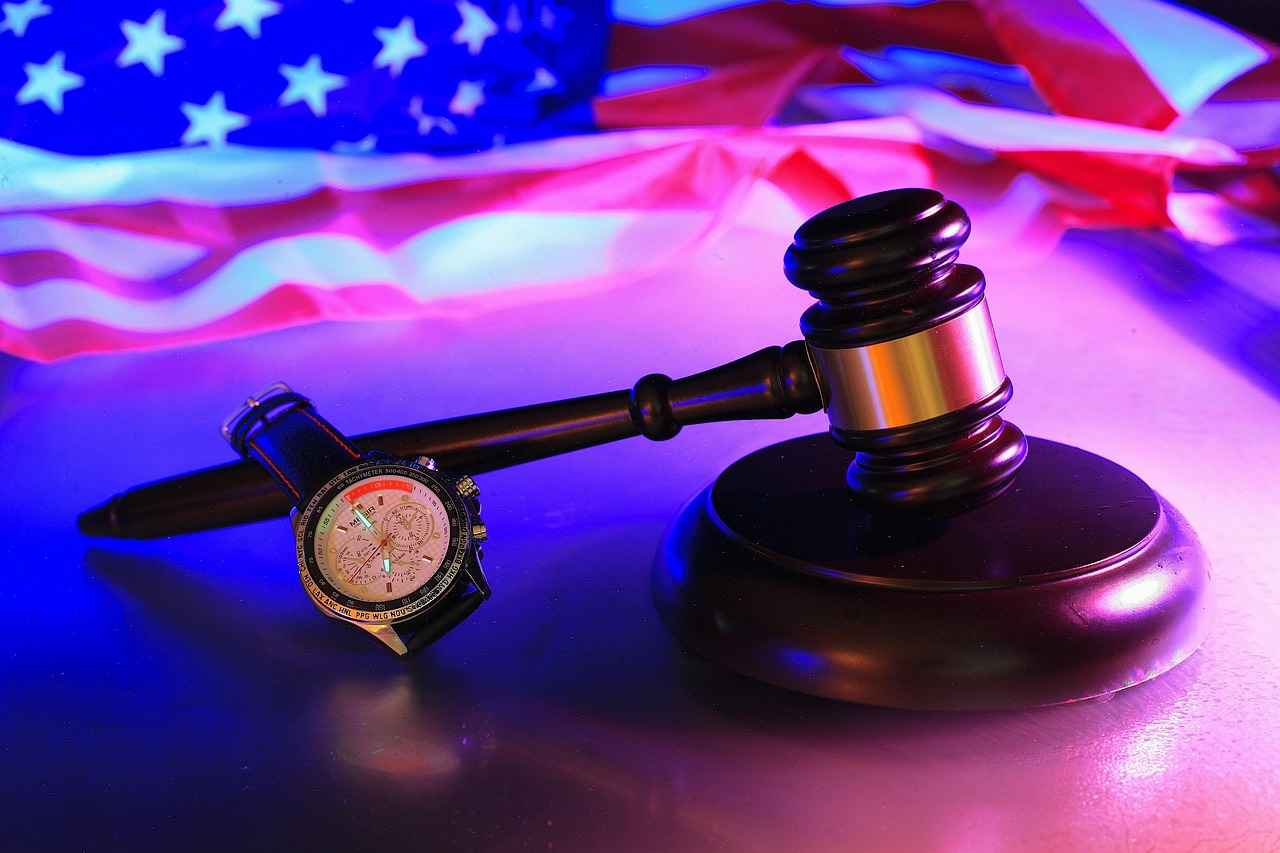
Understanding Personal Injury Cases
Personal injury cases represent a significant area of law, focusing on claims for injuries that individuals sustain due to the negligence or wrongful actions of others. These claims can arise from a variety of incidents, including car accidents, slip and falls, workplace injuries, and more. Understanding the intricacies of personal injury law is essential for anyone seeking compensation for their injuries, as it can greatly influence the outcome of a case.
When pursuing a personal injury claim, it is crucial to establish that the other party was negligent. This involves proving that they had a duty of care towards the injured party, that they breached this duty, and that their breach directly caused the injury. A successful claim can result in compensation for medical expenses, lost wages, pain and suffering, and other damages.
To find the right attorney for a personal injury case, consider the following steps:
- Research Credentials: Look for attorneys who specialize in personal injury law and have a proven track record of successful settlements or verdicts in similar cases.
- Read Reviews: Online reviews and testimonials can provide insight into the attorney’s reputation and the experiences of past clients.
- Consultation: Many personal injury attorneys offer free consultations. Use this opportunity to discuss your case and gauge the attorney’s expertise and approach.
- Contingency Fees: Most personal injury lawyers work on a contingency fee basis, meaning they only get paid if you win your case. Ensure you understand the fee structure before signing any agreements.
- Ask About Experience: Inquire about the attorney’s experience with cases similar to yours, as well as their familiarity with local laws and court procedures.
It is also important to be aware of red flags when selecting an attorney. Avoid those who make unrealistic promises about the outcome of your case, lack transparency regarding fees, or seem more interested in settling quickly than in achieving the best possible result for you.
In summary, understanding personal injury cases is vital for anyone who has been injured due to someone else’s negligence. By taking the time to research and select a qualified attorney, individuals can significantly improve their chances of obtaining the compensation they deserve.

Exploring Medical Malpractice Claims
Medical malpractice is a significant area of concern within the healthcare system, as it pertains to instances where healthcare professionals fail to meet the standard of care, leading to patient injuries or harm. This type of negligence can manifest in various forms, including misdiagnosis, surgical errors, improper treatment, or failure to inform patients about potential risks. Understanding the intricacies of medical malpractice claims is essential for anyone seeking justice and compensation for the damages incurred.
When exploring medical malpractice claims, it is crucial to identify a qualified attorney who specializes in this field. Here are some key factors to consider:
- Experience and Specialization: Look for attorneys who have extensive experience specifically in medical malpractice cases. Their familiarity with the nuances of healthcare laws and regulations can significantly impact the outcome of your case.
- Track Record: Review the attorney’s past case results. A lawyer with a history of successful settlements or verdicts in medical malpractice claims can provide confidence in their ability to handle your case effectively.
- Client Testimonials: Seek out reviews and testimonials from previous clients. Positive feedback can be a strong indicator of an attorney’s professionalism and dedication to their clients.
- Consultation Availability: Many attorneys offer free initial consultations. Use this opportunity to ask questions about their experience, approach to your case, and the potential strategies they might employ.
Additionally, it is essential to be aware of potential red flags when selecting a medical malpractice attorney:
- Lack of Transparency: If an attorney is unwilling to provide clear information about their fees, experience, or case strategy, it may be a sign to look elsewhere.
- High Pressure Sales Tactics: Be cautious of attorneys who pressure you into signing contracts or making quick decisions. A reputable lawyer will encourage you to consider your options carefully.
- Negative Reviews: While every attorney may have a few dissatisfied clients, a pattern of negative feedback can be a significant warning sign.
In addition to these considerations, utilizing various platforms can aid in your search for a qualified medical malpractice attorney:
- Online Legal Directories: Websites such as Avvo, FindLaw, and Martindale-Hubbell provide listings of attorneys along with ratings and reviews, helping you to make informed decisions.
- State Bar Association: Most state bar associations have resources available to help you find licensed attorneys in your area, including those specializing in medical malpractice.
- Referrals: Personal recommendations from friends, family, or healthcare professionals can also lead you to trustworthy attorneys with proven expertise in medical malpractice cases.
In conclusion, navigating the complexities of medical malpractice claims requires careful consideration and due diligence in selecting the right attorney. By focusing on experience, client feedback, and utilizing available resources, you can enhance your chances of finding a qualified legal representative who will advocate for your rights and help you seek the compensation you deserve.
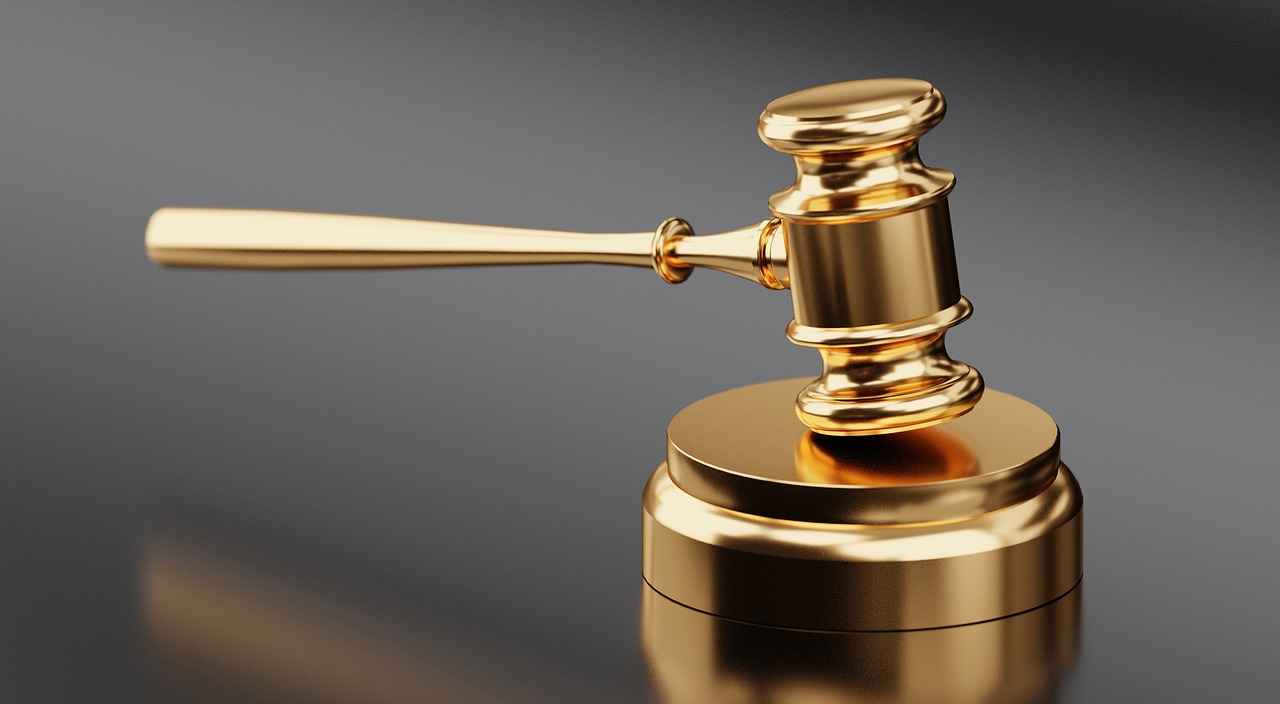
Navigating Breach of Contract Issues
Breach of contract disputes are a common occurrence in the legal landscape, arising when one party fails to meet their obligations as stipulated in a contract. These disputes can take various forms, including non-payment, failure to deliver goods or services, or not adhering to agreed-upon timelines. Such situations can lead to significant financial losses and strained business relationships, making it imperative to resolve them efficiently.
To effectively navigate breach of contract issues, it is crucial to engage a lawyer who specializes in contract law. A qualified attorney can provide invaluable assistance in several ways:
- Understanding Contractual Obligations: An attorney will help clarify what each party is obligated to do under the contract, which is essential for determining if a breach has occurred.
- Evaluating Damages: A skilled lawyer can assess the financial impact of the breach, helping you understand the potential damages you may be entitled to recover.
- Negotiation Skills: Many breach of contract cases are settled out of court. An experienced attorney can negotiate on your behalf to reach a favorable resolution.
- Litigation Representation: If negotiations fail, your lawyer will be prepared to represent you in court, presenting your case effectively to ensure your rights are protected.
When searching for a contract law attorney, consider the following practical steps:
- Research Credentials: Look for lawyers with specific experience in breach of contract cases. Check their educational background, years of practice, and any relevant certifications.
- Read Reviews: Online platforms such as Avvo and Martindale-Hubbell provide ratings and reviews from previous clients, giving insight into an attorney’s reputation and effectiveness.
- Consultation Meetings: Schedule initial consultations with potential attorneys. This allows you to gauge their understanding of your situation and their approach to handling your case.
- Assess Communication: Effective communication is vital. Choose a lawyer who listens to your concerns and explains complex legal concepts in a way you can understand.
Be wary of red flags when selecting a lawyer. For instance, if an attorney guarantees a specific outcome or pressures you to make quick decisions without fully explaining the implications, these may be signs of unprofessionalism. Additionally, ensure that the attorney is transparent about their fees and billing practices to avoid unexpected costs later on.
In major metropolitan areas like New York City, Los Angeles, and Chicago, the legal market is competitive, and finding the right attorney can be daunting. However, by following these steps and being diligent in your search, you can find a qualified lawyer who will advocate for your interests in breach of contract disputes.

Resolving Property Disputes
Property disputes can arise from a variety of situations, often leading to complex legal battles that can be both time-consuming and costly. These disputes frequently involve issues related to ownership, boundaries, and easements. Understanding the intricacies of property law is essential for anyone facing such challenges. A knowledgeable real estate attorney can assist in navigating these complex legal matters, ensuring that your rights are protected and that you have the best chance of achieving a favorable outcome.
When it comes to property disputes, the first step is to identify the nature of the conflict. Common issues include:
- Boundary disputes: These occur when two property owners disagree on where their property lines are drawn. This can lead to disputes over fences, trees, and other structures.
- Ownership disputes: These arise when there are conflicting claims to the same property, often due to inheritance issues, unclear titles, or fraudulent claims.
- Easement disputes: Easements grant one party the right to use a portion of another party’s property for a specific purpose, such as access to a road or utility lines. Disagreements can occur over the scope and use of these easements.
To effectively resolve these disputes, it is crucial to engage a real estate attorney who specializes in property law. Here are some key factors to consider when searching for the right legal representation:
- Experience: Look for an attorney with a proven track record in handling property disputes. An attorney with years of experience in real estate law will be more adept at navigating the complexities of your case.
- Local knowledge: Property laws can vary significantly by state and locality. An attorney familiar with the laws in your area will be better equipped to handle your case.
- Client reviews: Research online reviews and testimonials from previous clients. This can provide insight into the attorney’s effectiveness, communication style, and overall client satisfaction.
- Initial consultation: Many attorneys offer free initial consultations. Use this opportunity to discuss your case, assess the attorney’s approach, and determine if they are a good fit for your needs.
Additionally, be wary of red flags when hiring a real estate attorney. Avoid attorneys who:
- Promise guaranteed outcomes: No attorney can guarantee a specific result, especially in complex property disputes.
- Pressure you into signing contracts: A reputable attorney will give you time to consider your options without rushing you into a decision.
- Have poor communication: Effective communication is vital in legal matters. If an attorney is difficult to reach or fails to respond to your inquiries, it may be a sign of potential issues down the line.
In summary, resolving property disputes requires a thorough understanding of the law and a strategic approach. By engaging a qualified real estate attorney, you can navigate the complexities of property law more effectively. Ensure that you conduct thorough research, consider the attorney’s experience and local knowledge, and remain vigilant for any red flags during the hiring process. This proactive approach will enhance your chances of resolving your property dispute favorably.
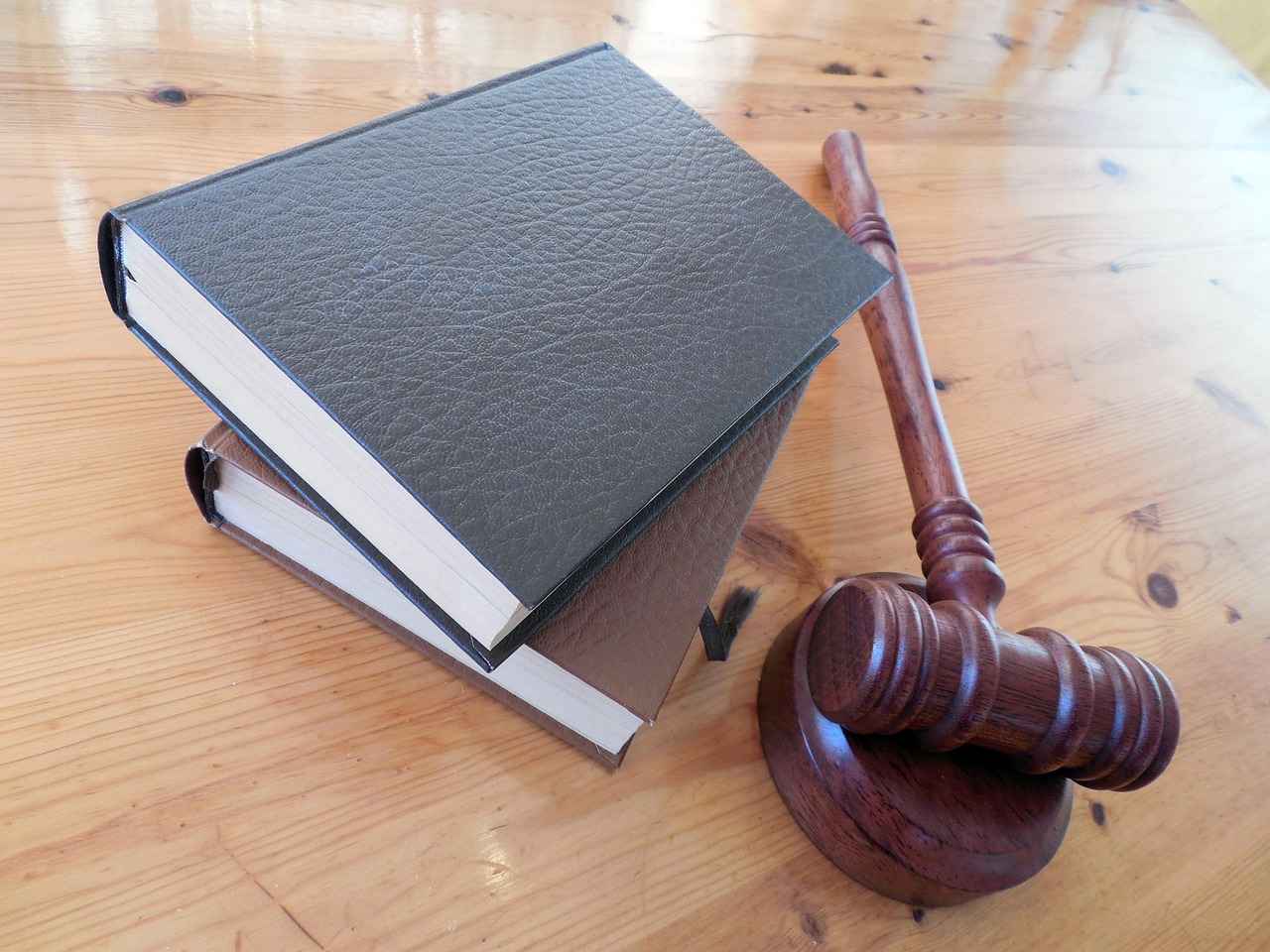
Landlord-Tenant Disputes Explained
Landlord-tenant disputes are common and can stem from various issues, including lease agreements, evictions, and property maintenance. Understanding the rights of tenants and the responsibilities of landlords is essential for effective legal representation. These disputes can escalate quickly, leading to legal action if not handled properly.
In many cases, disputes arise from misunderstandings regarding the terms of a lease. Tenants may feel that their rights are being violated when landlords fail to maintain the property, leading to unsafe or unsanitary living conditions. On the other hand, landlords may find themselves in conflict with tenants over issues such as late rent payments or unauthorized alterations to the rental unit.
To navigate these disputes effectively, both parties should familiarize themselves with local laws and regulations governing landlord-tenant relationships. For instance, many states have specific laws regarding security deposits, notice periods for eviction, and the required conditions for habitability.
When seeking legal representation, it is crucial to find an attorney who specializes in real estate law and has experience with landlord-tenant issues. Look for the following when selecting a lawyer:
- Experience: Ensure the attorney has a solid track record in handling landlord-tenant disputes.
- Local Knowledge: A lawyer familiar with the local laws in your area can provide invaluable insights.
- Client Reviews: Check online reviews and testimonials to gauge the attorney’s reputation.
- Initial Consultation: Many attorneys offer free consultations, which can help you assess their approach and expertise.
It is also important to recognize red flags when hiring a legal professional. Be wary of attorneys who:
- Make unrealistic promises about the outcome of your case.
- Pressure you into signing contracts without fully explaining the terms.
- Have a history of complaints or disciplinary actions against them.
In conclusion, understanding landlord-tenant disputes is vital for both parties involved. By knowing your rights and responsibilities and finding the right legal representation, you can navigate these disputes more effectively.

Defamation: Libel and Slander Cases
Defamation cases, encompassing both libel and slander, are serious legal matters that can significantly impact an individual’s reputation and livelihood. In essence, defamation occurs when false statements are made about a person, causing harm to their reputation. The key difference between libel and slander lies in the medium of the false statement: libel refers to written defamatory statements, while slander pertains to spoken statements.
Understanding the nuances of defamation law is crucial for anyone considering legal action. For instance, to succeed in a defamation claim, the plaintiff must prove that the statement was false, damaging, and made with a certain level of fault—either negligence or actual malice, depending on the plaintiff’s status (public figure vs. private individual). This complexity highlights the importance of selecting an attorney who specializes in defamation law.
When searching for a qualified defamation attorney, individuals should consider the following practical steps:
- Research Experience: Look for attorneys with a proven track record in handling defamation cases. Review their past case outcomes and client testimonials.
- Check Credentials: Ensure the attorney is licensed to practice in your state and has relevant experience in media law, First Amendment rights, and personal injury law.
- Consult Professional Associations: Organizations such as the American Bar Association can provide referrals to reputable attorneys specializing in defamation.
- Initial Consultations: Many attorneys offer free initial consultations. Use this opportunity to discuss your case and gauge the attorney’s understanding of defamation law.
- Understand Fees: Clarify the attorney’s fee structure upfront. Some may work on a contingency basis, while others may charge hourly rates. Make sure you understand the financial implications before proceeding.
It’s also essential to be aware of potential red flags when hiring a defamation attorney. If an attorney guarantees a specific outcome, lacks transparency about their fees, or pressures you to sign an agreement quickly, these could be signs of unprofessional conduct. A reputable attorney will provide honest assessments and allow you time to consider your options.
In addition to legal expertise, the attorney’s communication style and approach to client relationships are vital. A good defamation attorney should be responsive, empathetic, and able to explain complex legal concepts in a way that is easy to understand. This relationship is crucial, as defamation cases can be emotionally taxing for the plaintiff.
In today’s digital age, where information spreads rapidly, defamation cases have become increasingly prevalent. Social media platforms and online reviews can amplify false statements, making it all the more important to act quickly and seek legal counsel if you believe you have been defamed. An experienced attorney can guide you through the process of gathering evidence, such as screenshots, witness statements, and expert opinions, to strengthen your case.
Overall, navigating a defamation case requires not just legal acumen but also a strategic approach to finding the right attorney. By conducting thorough research, understanding the legal landscape, and being aware of potential pitfalls, individuals can better position themselves for a successful outcome in their defamation claims.

Employment Disputes and Workers’ Rights
Employment disputes often arise in various forms, including wrongful termination, discrimination, and wage issues. These conflicts can significantly impact an employee’s livelihood and well-being, making it crucial to understand how to find an attorney specializing in employment law to safeguard workers’ rights.
Understanding Employment Law
Employment law encompasses a wide range of legal issues that affect the relationship between employers and employees. Wrongful termination involves dismissals that violate federal or state laws, such as firing an employee for reporting illegal activities or discrimination. Discrimination can occur based on race, gender, age, or disability, and it is illegal under various laws, including the Equal Employment Opportunity Commission (EEOC) guidelines. Wage issues often relate to unpaid overtime or violations of minimum wage laws, which can lead to significant financial strain for employees.
Finding the Right Employment Attorney
- Research and Referrals: Start by seeking referrals from trusted sources, such as friends, family, or colleagues who have had positive experiences with employment lawyers. Online platforms like Avvo and FindLaw can also provide valuable insights into attorneys’ qualifications and client reviews.
- Check Credentials: Look for attorneys who specialize in employment law and have a proven track record of success in similar cases. Verify their education, experience, and any relevant certifications, such as membership in the National Employment Lawyers Association (NELA).
- Initial Consultation: Most employment attorneys offer free consultations. Use this opportunity to discuss your case, ask about their experience, and gauge their understanding of employment law. Pay attention to their communication style and whether they seem genuinely interested in your situation.
Red Flags to Avoid
- Lack of Specialization: Be cautious of attorneys who do not specialize in employment law or have limited experience in handling cases similar to yours.
- High Fees without Clear Justification: Understand the fee structure upfront. Avoid attorneys who are vague about their fees or demand large sums without a clear explanation of their services.
- Poor Communication: An attorney who is unresponsive or fails to communicate effectively may not prioritize your case. Choose someone who values open communication and keeps you informed throughout the process.
Common Employment Disputes
Understanding the types of disputes that can arise in the workplace is essential for recognizing when to seek legal assistance. Common issues include:
- Wrongful Termination: If you believe you were fired due to discrimination, retaliation, or breach of contract, it is vital to consult an attorney.
- Discrimination Claims: If you experience unfair treatment based on race, gender, age, or disability, legal representation can help you file a complaint with the EEOC.
- Wage and Hour Disputes: Issues regarding unpaid wages, overtime, or misclassification can lead to legal action against employers who violate labor laws.
Conclusion
Finding the right attorney to handle employment disputes is critical for protecting your rights as a worker. By conducting thorough research, checking credentials, and being aware of red flags, you can ensure that you choose a qualified legal professional who will advocate for your best interests. Remember, early intervention can often lead to a more favorable outcome in employment-related cases.

Understanding Product Liability Claims
Product liability claims are a critical area of law that arise when consumers suffer injuries or damages due to defective products. These claims can involve a wide array of products, from household items to pharmaceuticals, and can lead to significant legal battles against manufacturers, retailers, and distributors. Understanding the intricacies of product liability is essential for anyone considering legal action.
There are typically three main types of product defects that can lead to liability claims:
- Design Defects: These occur when a product is inherently unsafe due to its design, making it dangerous for consumers even when manufactured correctly.
- Manufacturing Defects: This type of defect arises during the production process, where an error leads to a product that deviates from its intended design, resulting in harm.
- Marketing Defects: These involve inadequate warnings or instructions that fail to inform consumers about potential risks associated with the product.
When pursuing a product liability claim, it is crucial to establish that the product was defective and that this defect directly caused the injury. This often requires extensive evidence, including expert testimony, product testing, and documentation of the consumer’s injuries.
Finding a qualified attorney to navigate the complexities of product liability cases is vital. Here are some practical tips for selecting the right legal representation:
- Specialization: Look for attorneys who specialize in product liability law. This ensures they have the necessary expertise and experience to handle your case effectively.
- Track Record: Review the attorney’s history of successful cases in product liability. A proven track record can provide confidence in their ability to represent your interests.
- Initial Consultation: Many attorneys offer free consultations. Use this opportunity to discuss your case and assess the attorney’s understanding and approach.
- Client Reviews: Check online reviews and testimonials from former clients to gauge the attorney’s reputation and reliability.
- Communication: Ensure that the attorney communicates clearly and is responsive to your questions. Effective communication is key to a successful attorney-client relationship.
Additionally, be wary of red flags when hiring an attorney:
- High Pressure Tactics: If an attorney pressures you to sign a contract quickly, it may indicate a lack of professionalism.
- Lack of Transparency: Be cautious of attorneys who are vague about their fees or the legal process.
- Negative Reviews: A pattern of negative feedback from clients can signal potential issues in the attorney’s practice.
In summary, product liability claims can be complex and challenging, requiring the expertise of a skilled attorney. By understanding the types of defects, knowing what to look for in a lawyer, and being aware of potential red flags, consumers can take informed steps toward seeking justice for their injuries.
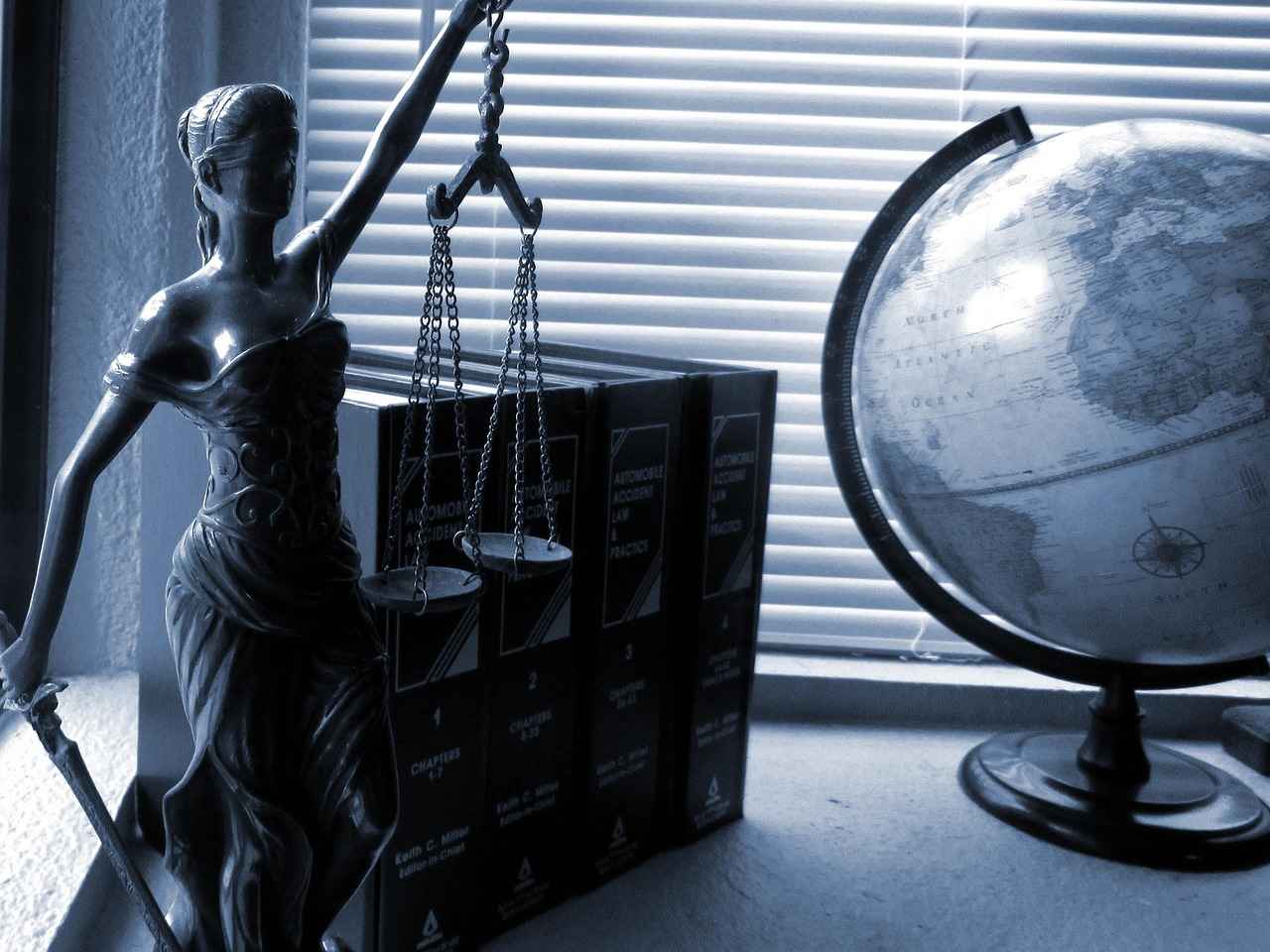
Wrongful Death Cases: Seeking Justice
Wrongful death cases are among the most emotionally charged legal matters one can encounter. These claims arise when a person’s death results from the negligence or misconduct of another party, whether that be an individual, company, or government entity. The surviving family members, often grappling with profound grief, may seek justice not only to honor their loved one but also to secure financial compensation for their loss. Understanding how to navigate this complex legal landscape is crucial for achieving a favorable outcome.
To begin with, it is essential to recognize the elements that constitute a wrongful death claim. Generally, these claims require proof of negligence, which involves demonstrating that the responsible party had a duty of care to the deceased, breached that duty, and that the breach directly caused the death. Common scenarios include fatal car accidents, medical malpractice, workplace accidents, and product liability cases. Each of these situations demands a different approach and expertise, making it imperative to find an attorney who specializes in wrongful death cases.
When searching for a qualified attorney in this field, there are several factors to consider:
- Experience: Look for attorneys who have a proven track record in handling wrongful death claims. Their experience can significantly influence the outcome of your case.
- Compassion: Given the emotional toll of losing a loved one, it is vital to choose a lawyer who displays empathy and understanding. This quality can make the legal process less daunting.
- Reputation: Research online reviews and testimonials. A lawyer with a strong reputation in the community is likely to be more trustworthy.
- Success Rate: Inquire about their success rate in similar cases. A high success rate can indicate their capability in navigating the complexities of wrongful death claims.
- Contingency Fees: Many wrongful death attorneys work on a contingency fee basis, meaning they only get paid if you win your case. This arrangement can alleviate some financial stress during a difficult time.
In addition to these factors, utilizing various platforms can enhance your search for the right attorney:
- Legal Directories: Websites like Avvo or FindLaw provide listings of attorneys, complete with ratings and reviews.
- Referrals: Personal recommendations from friends, family, or colleagues can lead you to trustworthy lawyers who have successfully handled wrongful death cases.
- Bar Associations: Local or state bar associations often have referral services that can connect you with qualified attorneys in your area.
Be cautious of red flags when selecting an attorney. Avoid those who make unrealistic promises about the outcome of your case, as legal proceedings can be unpredictable. Additionally, be wary of lawyers who pressure you into signing contracts without giving you sufficient time to review them. A reputable attorney will prioritize your needs and ensure that you fully understand the legal process.
In conclusion, pursuing a wrongful death claim is a challenging journey filled with emotional and legal hurdles. However, by finding a compassionate and experienced attorney, you can seek justice on behalf of your loved one and navigate the complexities of the legal system with greater ease. Remember to conduct thorough research, ask the right questions, and trust your instincts when making this crucial decision.
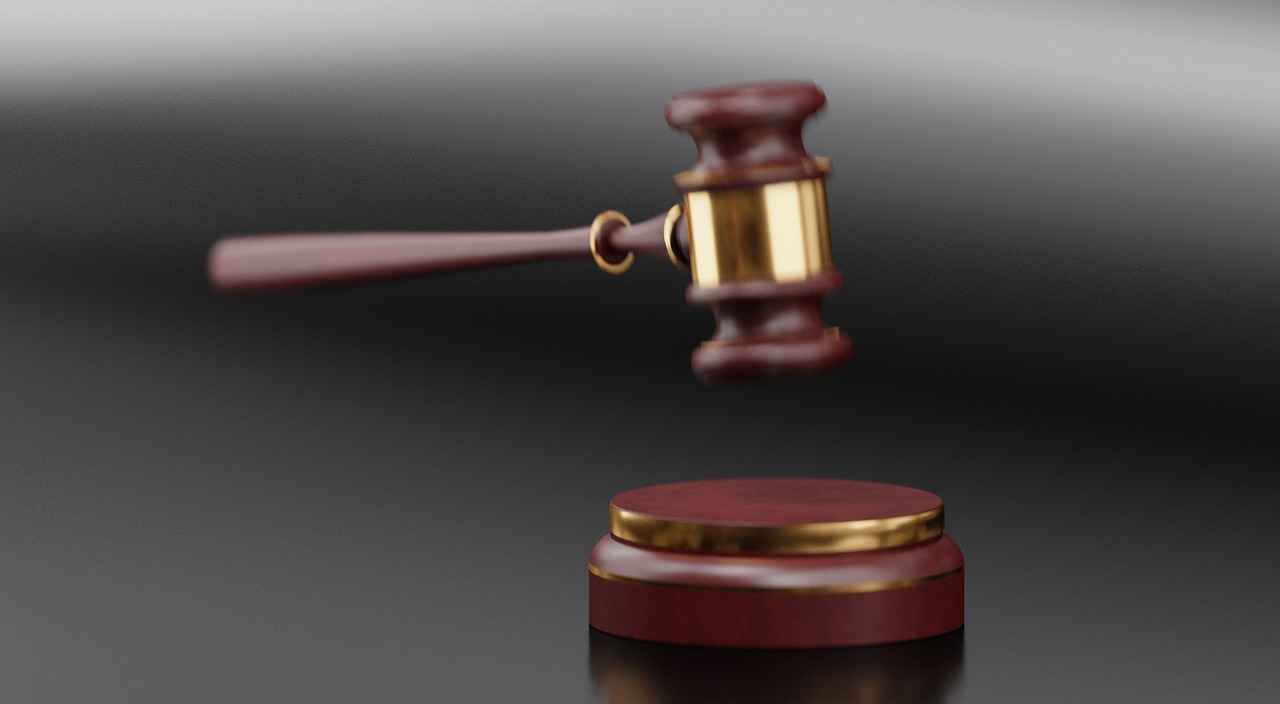
Class Action Lawsuits: When to Join
Class action lawsuits serve as a powerful tool for individuals seeking justice when they have been wronged by corporations or entities. These lawsuits allow a group of individuals with similar claims to band together and sue collectively, which can significantly increase their chances of success compared to filing individual claims. Understanding the intricacies of the class action process is crucial for potential plaintiffs.
When considering joining a class action lawsuit, it is important to assess whether your situation aligns with the collective claims of the group. Typically, class action lawsuits arise in cases of consumer fraud, product liability, or corporate misconduct. For instance, if a defective product has caused harm to multiple consumers, those affected may join forces to hold the manufacturer accountable.
Finding the Right Attorney
Finding an attorney with experience in class action cases is vital. Look for lawyers who specialize in this area of law and have a proven track record of successfully managing class action lawsuits. A qualified attorney will guide you through the process, help you understand your rights, and ensure that your interests are represented. Here are some tips for finding the right legal representation:
- Research Credentials: Check the attorney’s background, including their education, experience, and any accolades or recognitions in class action law.
- Read Reviews: Look for client testimonials and reviews on legal websites or platforms like Avvo or Martindale-Hubbell.
- Consult Multiple Attorneys: Schedule consultations with several lawyers to gauge their approach, expertise, and compatibility with your needs.
- Assess Communication Skills: Choose an attorney who communicates clearly and is willing to answer all your questions.
Understanding the Class Action Process
The class action process begins with the filing of a complaint, which outlines the claims and the proposed class of plaintiffs. The court will then evaluate whether the case meets the requirements for a class action, including:
- Numerosity: There must be a large number of individuals affected by the issue, making it impractical for them to file individual lawsuits.
- Commonality: The claims of the plaintiffs must share common legal or factual questions.
- Typicality: The claims of the representative plaintiffs must be typical of the claims of the entire class.
- Adequacy: The representative plaintiffs and their attorneys must adequately protect the interests of the class.
Once certified, the class action can proceed, and the court will oversee the proceedings. This includes managing settlements or judgments, which will be distributed among the class members. It is essential to stay informed throughout the process and maintain communication with your attorney.
Red Flags to Watch For
While seeking legal representation, be vigilant for potential red flags that may indicate a less-than-reputable attorney:
- Lack of Experience: Be cautious of attorneys who lack experience in class action lawsuits or who have not handled cases similar to yours.
- Pressure Tactics: If an attorney pressures you to join a lawsuit or to sign a contract without giving you adequate time to review it, this is a warning sign.
- Unclear Fee Structures: Ensure that the attorney’s fee structure is transparent and that you understand how costs will be handled.
- Poor Communication: If an attorney is difficult to reach or does not respond promptly to your inquiries, consider looking for someone else.
In conclusion, class action lawsuits provide a valuable avenue for individuals to seek justice collectively. By understanding the process and diligently finding a qualified attorney, you can enhance your chances of a successful outcome. Remember to conduct thorough research, ask the right questions, and be aware of potential pitfalls as you navigate this complex legal landscape.
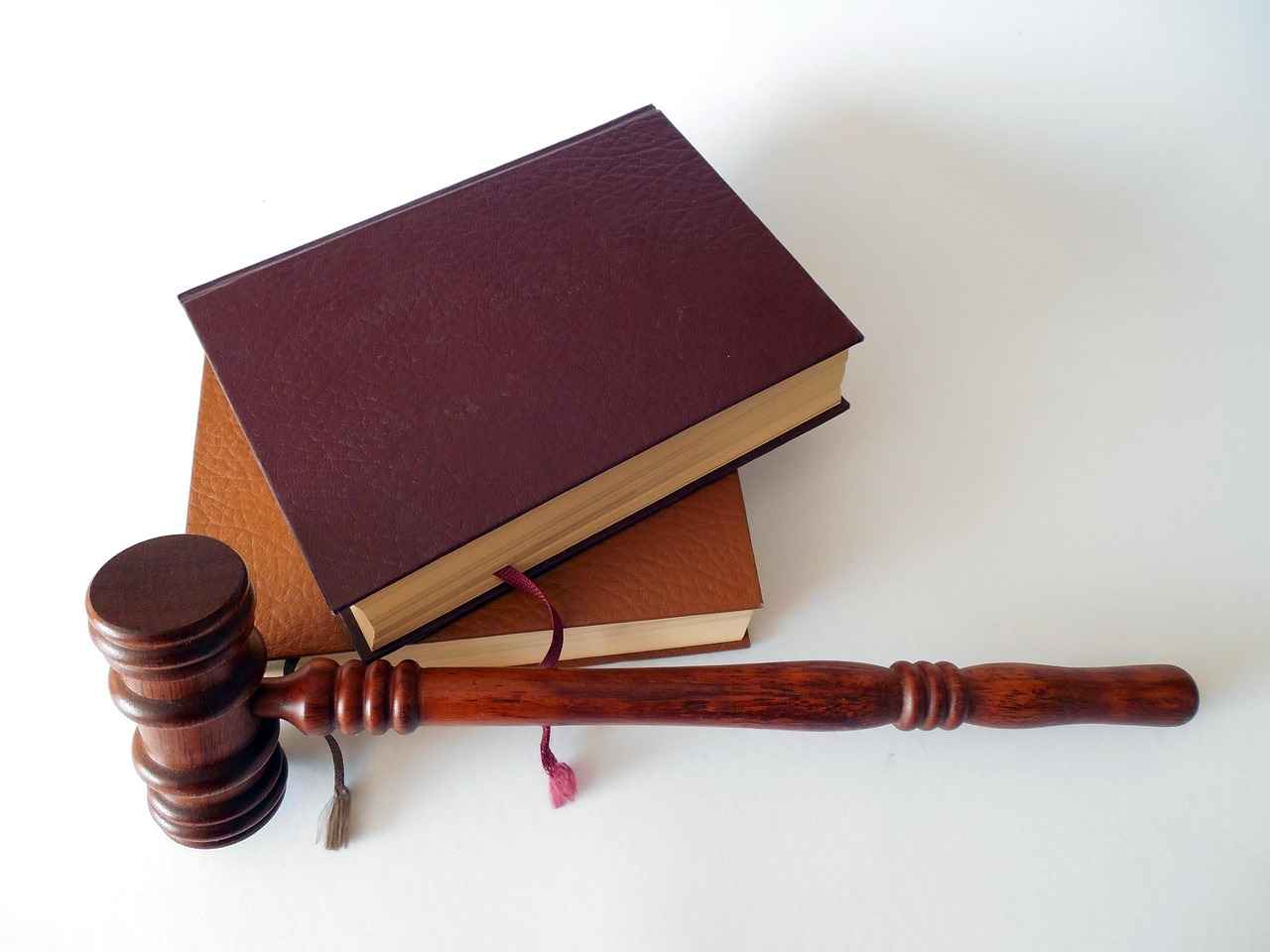
Criminal Cases: Assault and Battery
Assault and battery are serious offenses that can lead to significant legal repercussions. In the U.S., these charges can vary in severity, ranging from misdemeanors to felonies, depending on the circumstances surrounding the incident. Understanding the legal framework and implications of assault and battery is crucial for anyone facing such allegations.
Assault generally refers to the threat or attempt to cause physical harm to another person, while battery involves actual physical contact or harm. Both charges can stem from various situations, including altercations, domestic disputes, or even misunderstandings. Given the potential consequences, including hefty fines, imprisonment, and a lasting criminal record, it is essential to seek qualified legal representation.
When searching for a criminal defense attorney in Irving, Texas, or any major city, consider the following steps:
- Research Local Attorneys: Start by searching online directories or legal websites that list attorneys specializing in criminal defense. Look for those with experience specifically in assault and battery cases.
- Check Credentials: Verify the attorney’s qualifications, including their education, years of practice, and any certifications in criminal law. Membership in professional organizations, such as the National Association of Criminal Defense Lawyers, can also indicate a commitment to the field.
- Read Reviews: Look for client testimonials and reviews on platforms like Avvo or Google. Pay attention to feedback regarding their communication skills, case outcomes, and overall client satisfaction.
- Schedule Consultations: Many attorneys offer free initial consultations. Use this opportunity to discuss your case and assess whether the attorney is a good fit for your needs.
- Assess Experience: Inquire about the attorney’s experience with cases similar to yours. A lawyer who has successfully handled assault and battery cases will be more equipped to navigate the legal complexities involved.
- Evaluate Communication: Ensure that the attorney communicates clearly and promptly. You want someone who will keep you informed and answer your questions throughout the legal process.
- Understand Fees: Discuss the attorney’s fee structure upfront. Some may charge a flat fee, while others may bill hourly. Make sure you understand the costs involved and any potential additional expenses.
Finding the right attorney can significantly impact the outcome of your case. A skilled criminal defense lawyer will not only provide legal expertise but also offer emotional support during this challenging time. They will work diligently to build a strong defense, negotiate plea deals, or represent you in court if necessary.
In addition to the above steps, being aware of red flags can help you avoid hiring the wrong attorney. Be cautious of lawyers who:
- Promise Guaranteed Outcomes: No attorney can guarantee a specific result, as every case is unique. Be wary of those who make unrealistic promises.
- Rush the Consultation: If an attorney seems disinterested in your case or rushes through the consultation, it may indicate a lack of commitment.
- Have a Poor Reputation: Check for any disciplinary actions or complaints against the attorney with your state’s bar association.
In summary, assault and battery charges require serious attention and a knowledgeable defense attorney. By conducting thorough research, evaluating credentials, and being mindful of red flags, individuals can find a qualified attorney in Irving or any major city who will advocate for their rights and work towards the best possible outcome.

Understanding Drug Offenses and Legal Representation
Understanding drug offenses is critical for anyone navigating the legal landscape in the United States. These offenses can include a variety of charges, ranging from simple possession of controlled substances to serious allegations of trafficking or distribution. The legal consequences of drug offenses can be severe, often resulting in significant fines, incarceration, or both. Therefore, securing the right legal representation is paramount. An experienced attorney can provide tailored defense strategies specific to the circumstances of each case.
When facing drug charges, individuals should first understand the nature of the offense they are accused of. Possession typically refers to having illegal substances for personal use, while trafficking involves the sale or distribution of these substances. The legal definitions and penalties can vary significantly by state, making it essential to consult with an attorney who specializes in drug law.
Finding a qualified attorney in this field involves several steps. Begin by researching local law firms that have a strong track record in handling drug-related cases. Look for attorneys who are members of reputable organizations, such as the National Association of Criminal Defense Lawyers (NACDL) or state-specific bar associations. These affiliations often indicate a commitment to staying updated on the latest legal developments and best practices.
Utilizing online platforms can also be beneficial. Websites like Avvo and FindLaw allow individuals to search for attorneys based on their practice area and location. These platforms provide client reviews, ratings, and detailed profiles, which can help in making an informed decision. Additionally, social media platforms, particularly LinkedIn, can offer insights into an attorney’s professional background and connections.
In interviews with potential attorneys, it’s crucial to ask specific questions about their experience with drug offenses. Inquire about their success rate, strategies for defense, and familiarity with local courts. A good attorney will be transparent about their approach and will take the time to understand the unique aspects of your case.
It’s also important to be aware of red flags when hiring an attorney. Be cautious of those who guarantee specific outcomes, as no attorney can predict the results of a case with certainty. Additionally, avoid attorneys who seem disinterested in your case or rush through consultations. The attorney-client relationship is built on trust and communication, so finding someone who is genuinely invested in your defense is essential.
Lastly, consider the financial aspect of hiring a legal professional. Many attorneys offer free initial consultations, which can provide an opportunity to assess their suitability without incurring costs. During this meeting, discuss their fee structures—whether they charge hourly rates or flat fees—and ensure that you understand all potential costs involved in your defense.
In summary, navigating drug offenses requires not only an understanding of the legal landscape but also the right legal representation. By taking the time to research, interview, and evaluate potential attorneys, individuals can find a qualified professional who will advocate for their rights and work towards the best possible outcome in their case.

Navigating Family Law Issues: Divorce and Custody
Family law is a complex area that deals with significant life events, including divorce, child custody, and support issues. These matters often evoke intense emotions and can be overwhelming for those involved. Therefore, finding a compassionate and knowledgeable attorney who specializes in family law is crucial for effectively navigating these emotionally charged situations.
When facing a divorce, it is essential to understand the legal implications and processes involved. A divorce attorney can guide you through the various stages, from filing the initial paperwork to negotiating settlements. They will help you understand your rights and obligations, ensuring that you are protected throughout the process. Look for an attorney with experience in handling cases similar to yours, as they will be better equipped to anticipate potential challenges and offer tailored solutions.
Child custody is another critical aspect of family law. When parents separate, determining custody arrangements can be contentious. It’s vital to have an attorney who can advocate for your interests while also considering the best outcomes for the children involved. A skilled family law attorney can help you understand the different types of custody arrangements, such as sole custody, joint custody, and visitation rights, and work towards an agreement that prioritizes the well-being of the children.
Support issues, including child support and spousal support (alimony), are also integral to family law. An attorney can assist in calculating fair support amounts based on various factors, such as income, expenses, and the needs of the children. They can also help you navigate any modifications to support agreements that may be necessary due to changes in circumstances.
Finding the right family law attorney involves several steps:
- Research Credentials: Look for attorneys with specialized certifications in family law. Membership in professional organizations, such as the American Academy of Matrimonial Lawyers, can indicate a commitment to excellence in this field.
- Read Reviews: Online reviews and testimonials can provide insight into an attorney’s reputation and client satisfaction. Websites like Avvo and Martindale-Hubbell can be helpful resources.
- Schedule Consultations: Meeting with potential attorneys allows you to gauge their communication style and approach to your case. Prepare questions regarding their experience, strategy, and fees.
- Assess Compatibility: Family law matters are deeply personal, so it’s essential to choose an attorney with whom you feel comfortable discussing sensitive issues.
In addition to these considerations, be aware of red flags when selecting a family law attorney:
- Lack of Communication: If an attorney is difficult to reach or does not respond promptly to inquiries, it may indicate a lack of commitment to your case.
- Unclear Fee Structures: Be cautious of attorneys who do not provide transparent fee structures or who pressure you to make quick decisions.
- Negative Reviews: Consistent negative feedback from former clients can be a warning sign of potential issues with an attorney’s practice.
In summary, navigating family law issues such as divorce and custody requires the expertise of a dedicated attorney. By conducting thorough research, asking the right questions, and being aware of potential red flags, you can find a qualified attorney who will advocate for your interests and help you achieve a favorable outcome.
Frequently Asked Questions
- What should I look for in a personal injury attorney?
When searching for a personal injury attorney, focus on their experience with similar cases, their success rate, and client reviews. It’s also essential to find someone who communicates well and understands your situation.
- How do I know if I have a medical malpractice case?
To determine if you have a medical malpractice case, consider if a healthcare professional failed to meet the standard of care and if that failure resulted in harm. Consulting with a specialized attorney can provide clarity.
- What are the typical costs associated with hiring a lawyer?
Lawyer fees can vary widely. Some charge hourly rates, while others work on a contingency basis, meaning they only get paid if you win your case. Always discuss fees upfront to avoid surprises.
- How can I resolve a landlord-tenant dispute?
Resolving a landlord-tenant dispute often involves reviewing the lease agreement and understanding your rights. If necessary, consult with an attorney who specializes in landlord-tenant law for guidance.
- What is the process of filing a class action lawsuit?
Filing a class action lawsuit involves gathering a group of affected individuals, finding a qualified attorney, and submitting a legal complaint. It’s a complex process, so professional legal help is crucial.
- What should I do if I’m facing criminal charges?
If you’re facing criminal charges, it’s vital to seek legal representation immediately. A criminal defense attorney can help navigate the legal system and develop a defense strategy tailored to your situation.














